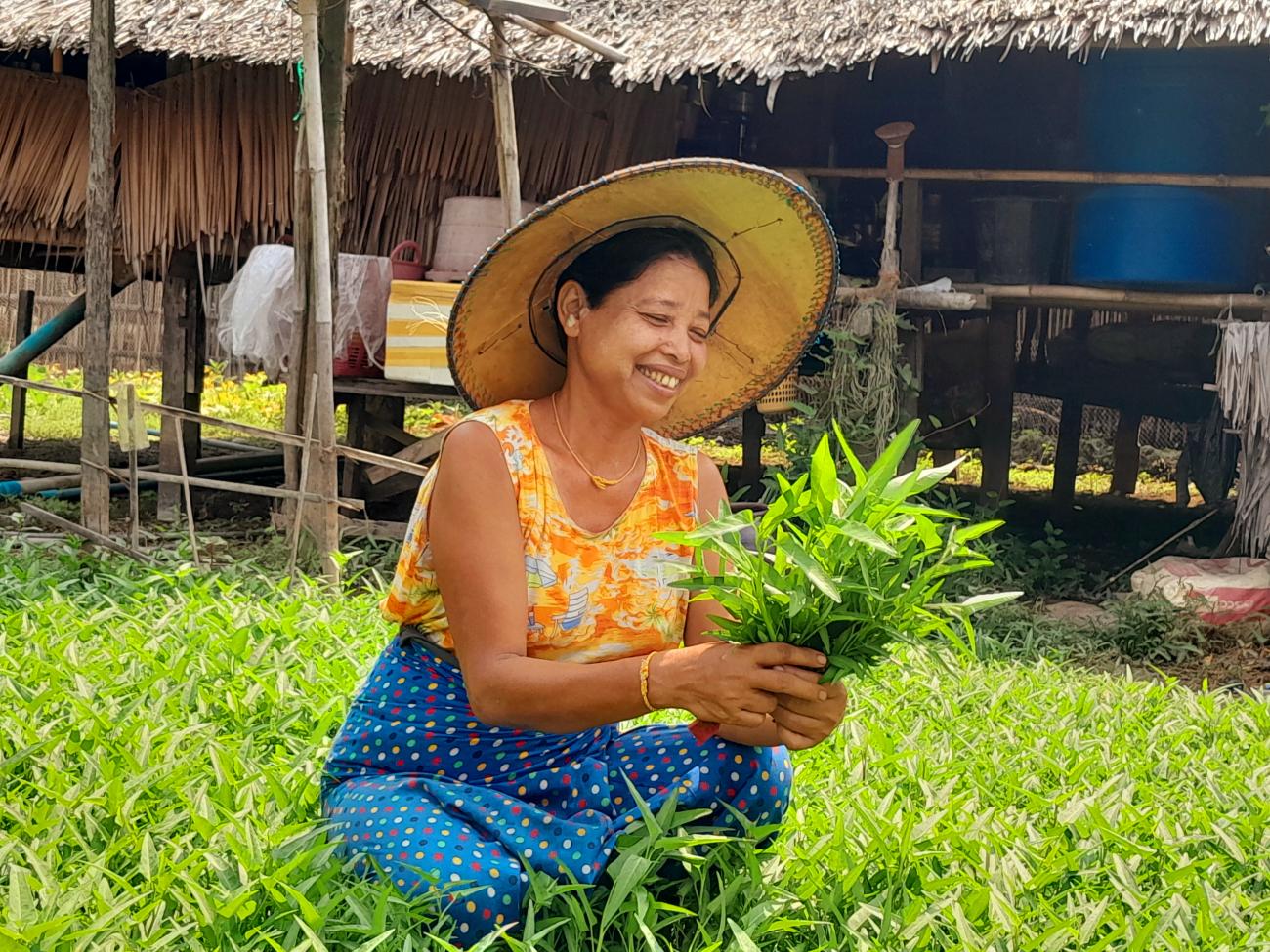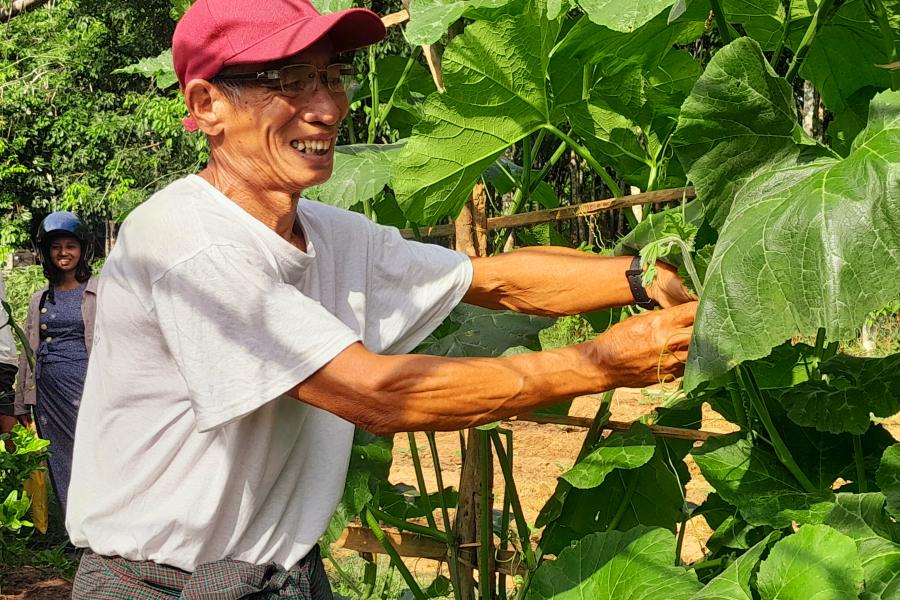Responding to Myanmar’s growing food security crisis

The UN Food and Agriculture Organization and the Central Emergency Response Fund are enabling vulnerable farmers to feed themselves and their communities.
Myanmar is facing a rapidly growing food security crisis where 13.2 million people are already food insecure. Ongoing violence, economic crisis, recurrent climate-induced shocks, population displacement and COVID-19, among other factors, are disrupting the entire national food system. Against this backdrop, protecting the livelihoods of smallholder farmers to enable them to produce their own food is a frontline humanitarian response.
With the support of the Central Emergency Response Fund, the Food and Agriculture Organization of the United Nations (FAO) provided emergency assistance to 4 700 vulnerable farming households across six townships in Mon State during April 2022. Each beneficiary, including landless and seasonal workers as well as female headed households, received a cash grant of MMK 170 000 (USD 95) to meet their immediate food needs and other basic expenses. Along with the cash grant, FAO trained 1 759 households in Chaungzon township on good agricultural practices and provided them with fertilizers, vegetable seeds and a nutrition guide. Additionally, to mitigate the risk of COVID-19, FAO provided information materials, hygiene items and face masks to all the beneficiary households.
Daw Tin Tin Win, 52 years old, is a landless farmer from Daukyet Village and was one of the beneficiaries of the response. Daw Tin Tin Win is the main breadwinner of her household and her spouse is unable to work due to a life-threatening medical condition. Before receiving assistance from FAO, she used to sell vegetables —that she buys from wholesale producers—in the local market and earn a marginal profit to cover some of the daily household needs. With the support that she received from FAO, she is now able to produce her own food, feed her family and generate a more reliable income.
“Now, I am growing water spinach in my backyard, which is enabling me to earn more profit than before, thanks to the seeds and assistance that I have received from FAO” said Daw Tin Tin Win.
U Ohn Myint, 65 years old, is smallholder farmer from Kalawt Kanai village and one of the beneficiaries of the response. His village was not only impacted by severe floods and other climate-induced shocks, but also by an unprecedented economic turmoil. With the cash grant that he received, he bought medicines, a rice bag and cooking oil to address the immediate food needs of his family. In parallel, he was able to restore his livelihoods and a sense of hope.

“With the vegetable seeds that I have received from FAO, I am growing pumpkins to reproduce seeds so that I can produce shoots and fruits in the upcoming season.” said U Ohn Myint.
FAO is continuing to scale-up its emergency response, aiming to assist more than 180 000 people in Kayah, Kayin, Chin, Mandalay, Ayeyarwaddy, Mon, Rakhine, Shan and Yangon in 2022. The response includes a range of interventions to support crop, livestock and vegetable production, along with the rehabilitation of vital irrigation infrastructure and the implementation of cash-based interventions. Every delay in protecting and restoring agricultural livelihoods means that the food security crisis in Myanmar will inevitably deteriorate further.
This article was originally published under the headline Myanmar food security crisis: FAO and the Central Emergency Response Fund are enabling vulnerable farmers to feed themselves and their communities on the FAO in Myanmar website on June 08, 2022, and can be found here.


